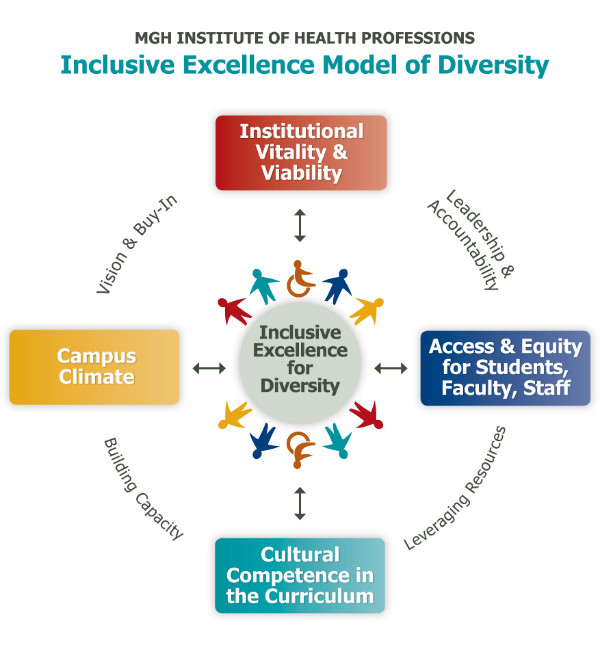Our Commitment to Diversity

Each year, the face of America becomes more diverse – a trend that is projected to accelerate in the coming years.
MGH Institute of Health Professions is committed to preparing health care leaders to meet the needs of this increasingly diverse society. From concerted efforts to diversify our student body, ensure a welcoming campus climate, and implement curricular changes to integrate cultural competence in all of our academic programs, the Institute continues to weave diversity into the fabric of everything we do.
Diversity at the MGH Institute encompasses an inclusive and welcoming environment that is enhanced by persons who differ in gender, race, ethnicity, national origin, age, socio-economic background, ability, sexual orientation and gender identity or expression, and religious belief.
This expression of our commitment to diversity is reflected in a community that is bound by the desire for equal consideration for all people. It is affirmed by the Institute's policies and recruitment and retention activities, thus, ensuring that all members of our community have the ability to reach their individual and collective potential.
Diversity is integral to the MGH Institute's learning and work environment. The Institute's Diversity, Equity, and Inclusion Council tracks its progress using the Diversity Scorecard:
-
Institutional vitality & viability: The Institute's visible and sustained commitment to diversity, and the effectiveness of institutional efforts to advance diversity
-
Human capital - Access & equity: The proportion and success of historically underrepresented students, faculty, and staff at the Institute
-
Cultural competence in the curriculum: Diversity learning experiences in programs, courses, and social/relational dimensions of the Institute's environment
-
Campus climate: An inclusive, equitable and welcoming climate that is respectful and supportive of all members of the Institute community
There is growing evidence that diversity enriches both learning and work, and contributes to institutional excellence. Rather than a goal unto itself, diversity of people, talents, and thought at the Institute will ensure that our faculty, students, and alumni are best prepared to address the range of challenges confronting the U.S. health care system. Ultimately, this will improve the quality of health care and health outcomes for all.
In addition to the Diversity Scorecard, see The Netter Principles for Building Organizational Inclusion.